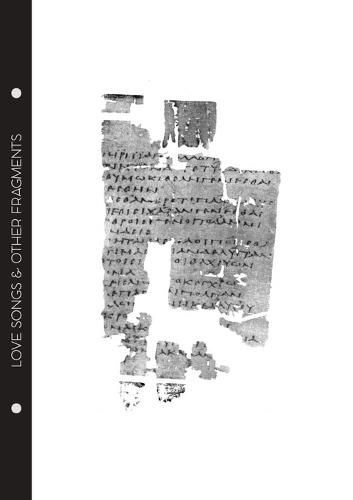Sappho - Love Songs & Other Fragments
Sappho

Sappho - Love Songs & Other Fragments
Sappho
This title is printed to order. This book may have been self-published. If so, we cannot guarantee the quality of the content. In the main most books will have gone through the editing process however some may not. We therefore suggest that you be aware of this before ordering this book. If in doubt check either the author or publisher’s details as we are unable to accept any returns unless they are faulty. Please contact us if you have any questions.
Sappho - Love Songs & Other Fragments Public Domain Poets #15 Publicdomainpoets.com Sappho (c. 630-570 B.C.) was born into a wealthy family from the island of Lesbos, and is said to have had 3 brothers. She probably took up poetry early in life, and would go on to be one of the most highly regarded lyric poets of her time. This collection brings together a generous helping of her surviving fragments, translated by James Easby-Smith (1891) & Edward Storer (1919), alongside a selection of others from various sources (1885-1924), with a 'Foreword' by Edward Storer. New edition designed and edited by Dick Whyte. The moon has set and the Pleiades Have gone. It is midnight; the hours pass; and I Sleep alone. Sappho was exiled to Sicily around 600 BC, but continued to write until around 570 BC. While known to be a prolific poet, much of her work was later destroyed by the Church, in large part because her love poetry was addressed to women: - some 10,000 lines reduced to fragments. It was translations of these incomplete verses, and specifcally their (unintentional) fragmentation, which would go on to influence early 'free verse' and Imagist poets, including Edward Storer, H.D., Amy Lowell, Marie Tudor Garland (et al.). Love shakes my soul. So do the oak-trees on the mountain Shake the wind. Storer, a founding member of one of the earliest English-language 'free verse' circles, went on to publish his own translations of Sappho's fragments in 1915, seemingly drawing on English-language versions of Japanese tanka and haikai as models. Other well-known translations at the time included Henry Wharton (1885), James Easby-Smith (1891), J.R. Tutin (1903), etc. Divine shell, Your song. Public Domain Press is dedicated to producing new editions of out-of-print poetry, particularly with regard to compressed & fragmented 'free verse' from the late-1800s & early-1900s. All poems start as facsimiles - to preserve original fonts - which are cleaned up, edited, and spaciously laid-out, adorned with illustrations, and ornaments from the books and magazines they originally appeared in. These are not simply "reprints" of previously existing books, but newly crafted collections, lovingly edited from public domain material, for the serious poetry lover.
This item is not currently in-stock. It can be ordered online and is expected to ship in 7-14 days
Our stock data is updated periodically, and availability may change throughout the day for in-demand items. Please call the relevant shop for the most current stock information. Prices are subject to change without notice.
Sign in or become a Readings Member to add this title to a wishlist.


